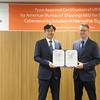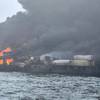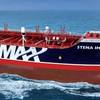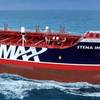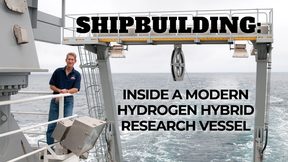US Warships Evacuate NOAA Pacific Island Researchers
Sailors and Marines from the Makin Island Amphibious Ready Group (ARG) and 11th Marine Expeditionary Unit (MEU) have conducted an emergent recovery of 11 researchers with the National Oceanic and Atmospheric Administration (NOAA) from the Papahnaumokukea Marine National Monument threatened by Hurricane Iselle.
The purpose of the operation was to assist the researchers in retreating from imminent danger of Hurricane Iselle that is expected to impact Lisianski Island, Laysan Island and the Pearl and Hermes Atoll.
"We work with NOAA and we're out here almost every summer in the Northwest Hawaiian Islands working with Hawaiian Monk Seal pups doing mostly population assessment," said, Carrie McAttee, a NOAA researcher. "We've been here since June and we were supposed to be here until September."
The recovery was prompted by the threat of Hurricane Iselle, the first hurricane to strike the Hawaii islands in more than two decades, which threatened the safety of the researchers, who were not equipped to withstand the extreme conditions of the looming storm.
USS Makin Island (LHD 8), USS Comstock (LSD 45), USS San Diego (LPD 22) each deployed rigid hull inflatable boats (RHIB) that traveled more than four miles and endured challenging seas but safely reached their destination. Once the boats reached the coastline, they carefully maneuvered to receive the researchers and their gear without affecting the endangered marine life below.
Getting the researchers onboard safely was a top concern. "It was important to us to ensure this was a safe evolution for all involved," said Capt. Vic Cooper, commodore, Amphibious Squadron Five. "We carefully considered the safety of the researchers, our Sailors and Marines, equipment and the environment, every step of the way."
Once all researchers were accounted for, the RHIBs returned to their respective ships and the researchers were given a warm welcome, a place to shower, dry clothing and a meal.
"It was quite impressive how quickly it all happened," said Kristine Meise, a NOAA researcher. "You guys were really efficient in getting here and getting us on board. We definitely want to thank everybody that we've met on the ship."



